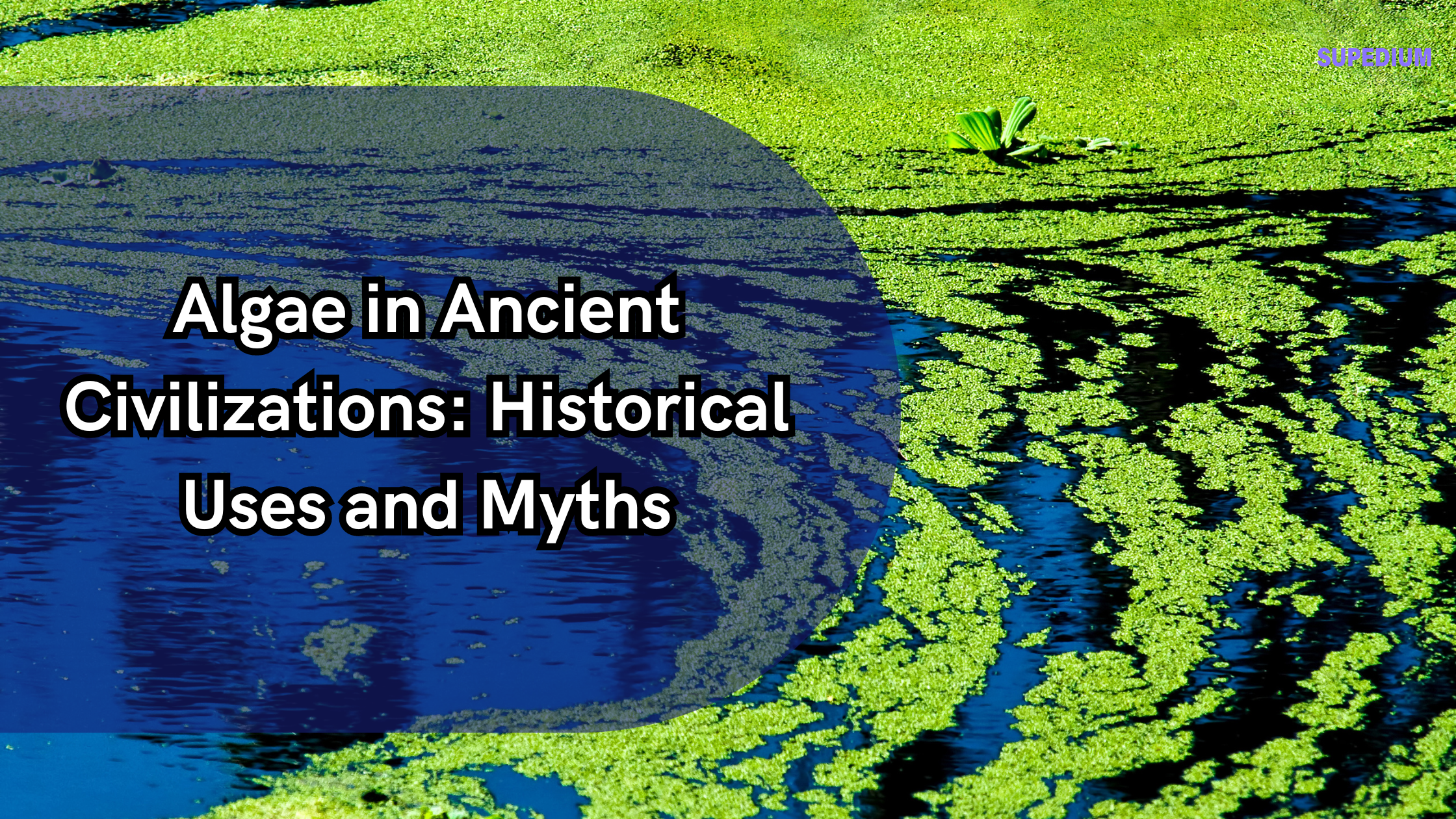Table of Contents
![]()
Introduction
Algae are a diverse group of photosynthetic organisms found in various aquatic environments, ranging from oceans and freshwater bodies to terrestrial habitats. They play crucial roles in ecosystems, contributing to oxygen production, nutrient cycling, and forming the base of many aquatic food webs. This article explores the significance of algae in ancient civilizations, examining their historical uses and the myths surrounding them.
Historical Uses of Algae in Ancient Civilizations
Ancient Egypt
In ancient Egypt, algae were integral to agricultural and medical practices. The Egyptians used algae as a natural fertilizer, harnessing its nutrient-rich properties to enhance soil fertility. Algae, especially those from the Nile, were incorporated into irrigation systems, improving water retention and soil health. In medicine, algae were utilized for their healing properties. Ancient texts suggest that algae were used in treatments for wounds and infections, as well as in the preparation of medicinal ointments and poultices.
Ancient China
China’s ancient practices reflect a deep integration of algae into daily life. Seaweeds like nori and kombu were prominent in the traditional Chinese diet, valued for their nutritional benefits and unique flavors. Algae were also significant in traditional Chinese medicine, where they were used in herbal remedies to treat various ailments. These remedies included preparations for improving digestion, reducing inflammation, and enhancing overall well-being.
Ancient Japan
Japan’s historical relationship with algae is well-documented through its culinary traditions and agricultural practices. Seaweeds such as nori, kombu, and wakame were staples in the Japanese diet, contributing to both flavor and nutrition. Algae were also used as soil conditioners in agriculture, particularly in rice cultivation. The incorporation of seaweed into soil not only enriched it but also promoted healthy rice growth, showcasing the ancient Japanese understanding of sustainable agricultural practices.
Ancient Mesopotamia
In Mesopotamian civilizations, algae were utilized in both food production and medicinal applications. Algae played a role in early aquaculture systems, where they were used to enrich water and support the cultivation of fish. In agriculture, algae were employed to enhance soil quality and support irrigation systems. Medicinally, algae were incorporated into treatments and rituals, reflecting their importance in ancient Mesopotamian health practices.
Algae in Mythology and Cultural Beliefs
Egyptian Mythology
In Egyptian mythology, algae were imbued with symbolic meanings related to fertility and regeneration. Algae’s vibrant green color and rapid growth were associated with the rejuvenation of life and natural cycles. Algae were sometimes linked to deities and spiritual practices, symbolizing the fertile and life-giving aspects of the Nile River.
Chinese Mythology
Chinese mythology features algae in various creation myths and legends. Algae were often associated with the primordial waters from which life emerged. In folklore, algae represented the abundance and vitality of nature, playing a role in stories that emphasize harmony with the environment.
Japanese Mythology
In Japanese mythology, algae appeared in Shinto rituals and beliefs, symbolizing the connection between humans and the natural world. Seaweeds were considered sacred in certain traditions and were featured in myths involving water deities and spirits. These cultural practices highlighted the reverence for aquatic life and its importance in maintaining balance and harmony.
Mesopotamian Beliefs
In Mesopotamian religious practices, algae were used in rituals and offerings, reflecting their role in maintaining spiritual and environmental balance. Algae were often symbolically linked to the divine and were used in various ceremonies to honor deities and seek blessings for agricultural prosperity.
Archaeological Evidence of Algae Use
Archaeological evidence provides insights into the historical use of algae. Artifacts such as pottery and tools reveal the incorporation of algae in daily life and rituals. Historical texts and records from ancient civilizations document the various applications of algae, from agriculture to medicine. Fossil evidence and remains of ancient irrigation systems also illustrate how algae were utilized to enhance soil and support aquaculture.
Modern Interpretations and Legacy
The historical uses of algae have influenced contemporary practices in various fields. Modern agriculture has seen a revival of ancient methods, with algae being used as organic fertilizers and soil conditioners. In medicine, traditional uses of algae have inspired the development of new treatments and supplements. Additionally, the culinary practices of ancient civilizations continue to inform modern cuisine, with seaweeds remaining a staple in many diets.
The preservation of cultural heritage through the study of ancient algae practices underscores their significance in historical and modern contexts. Understanding the role of algae in ancient civilizations helps us appreciate their contributions to sustainability and cultural heritage, offering valuable lessons for future practices.
Conclusion
Algae played a multifaceted role in ancient civilizations, from practical uses in agriculture and medicine to symbolic significance in myths and rituals. The historical applications of algae provide insights into the ingenuity and resourcefulness of ancient peoples. As we continue to explore and revitalize these ancient practices, we gain a deeper understanding of the interconnectedness of human culture and the natural world.
Share This





Be the first to comment